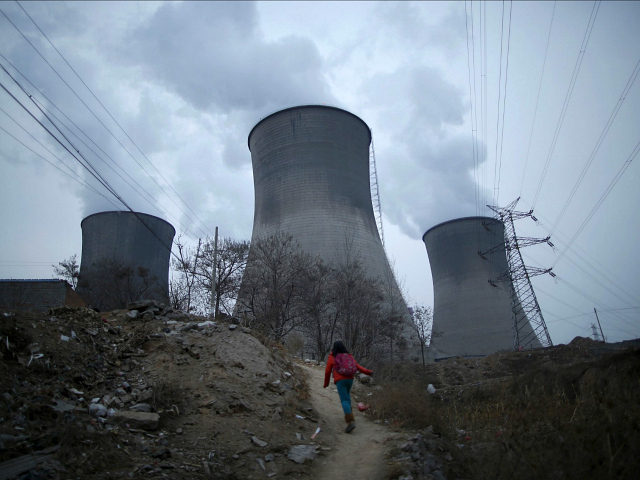A study published by the firm BMI Research predicts that the People’s Republic of China will become the world’s largest nuclear power by 2026, surpassing the United States.
The results of the study appeared in multiple news outlets, including Bloomberg and the South China Morning Post. According to the latter, the study found that China was set to “triple its nuclear capacity to nearly 100 gigawatts by 2026, making it the biggest market globally.”
“We expect growth to continue and China to emerge as one of the largest nuclear markets globally in terms of total installed capacity over the coming decade, as the huge pipeline of reactors that are planned, proposed or under construction gradually comes online,” the Post quotes BMI energy and renewable research head Georgina Hayden as saying in a statement.
Bloomberg adds that China is currently in the process of completing twenty new nuclear reactors nationwide, with nearly 200 other projects pending approval. China has a more desperate need to replace coal energy with other sources, particularly clean energy like nuclear, due to a sprawling pollution problem that affects most of the nation’s largest cities. While demanding other nations conform to international clean air standards in venues like the United Nations, the Chinese government has been unable to stop the precipitous decline in air quality in its cities. The radical environmentalist organization Greenpeace released a study in mid-2016 finding that China’s cities say a nearly 33 percent rise in air pollution between April and June. The study used Chinese government statistics, however, which are often unreliable in communist countries.
Despite the apparent increase in approvals for nuclear projects, the Chinese state-run newspaper People’s Daily reported earlier this year that the government “approved no new nuclear power unit projects in 2016, noting the nation’s weak electricity consumption market.” Many of the pending projects referred to above still need Beijing’s approval. The People’s Daily adds that the government approved eight such projects in 2015.
The newspaper adds that nuclear energy still accounts for only 3 percent of China’s electricity generation, compared to nearly 20 percent for the United States in 2015.
While China expanding its nuclear capabilities may initial appear to be good news for the nation’s environment, the success of transitioning to clean energy requires safe operation of nuclear facilities. A January Radio Free Asia report suggests China may not be able to rely on its nuclear plant operators delivering adequate performances.
“A string of mishaps at Chinese nuclear power plants last year has raised concerns about the safety of the rapidly growing industry, especially given the country’s overall industrial safety record,” Radio Free Asia reported, listing over a dozen incidents of “errors” at nuclear facilities. Among the errors were communication mishaps, intentional breach of protocol, and “pressing the wrong buttons.” The report ultimately blamed the errors on a Communist Party structure that values ideological loyalty over technical ability.
Concerns over the safety of domestic nuclear plants appear to have done little to stop the mass production of structural materials for nuclear plants commissioned by other nations as many of these incidents have involved human and not mechanical error.

COMMENTS
Please let us know if you're having issues with commenting.